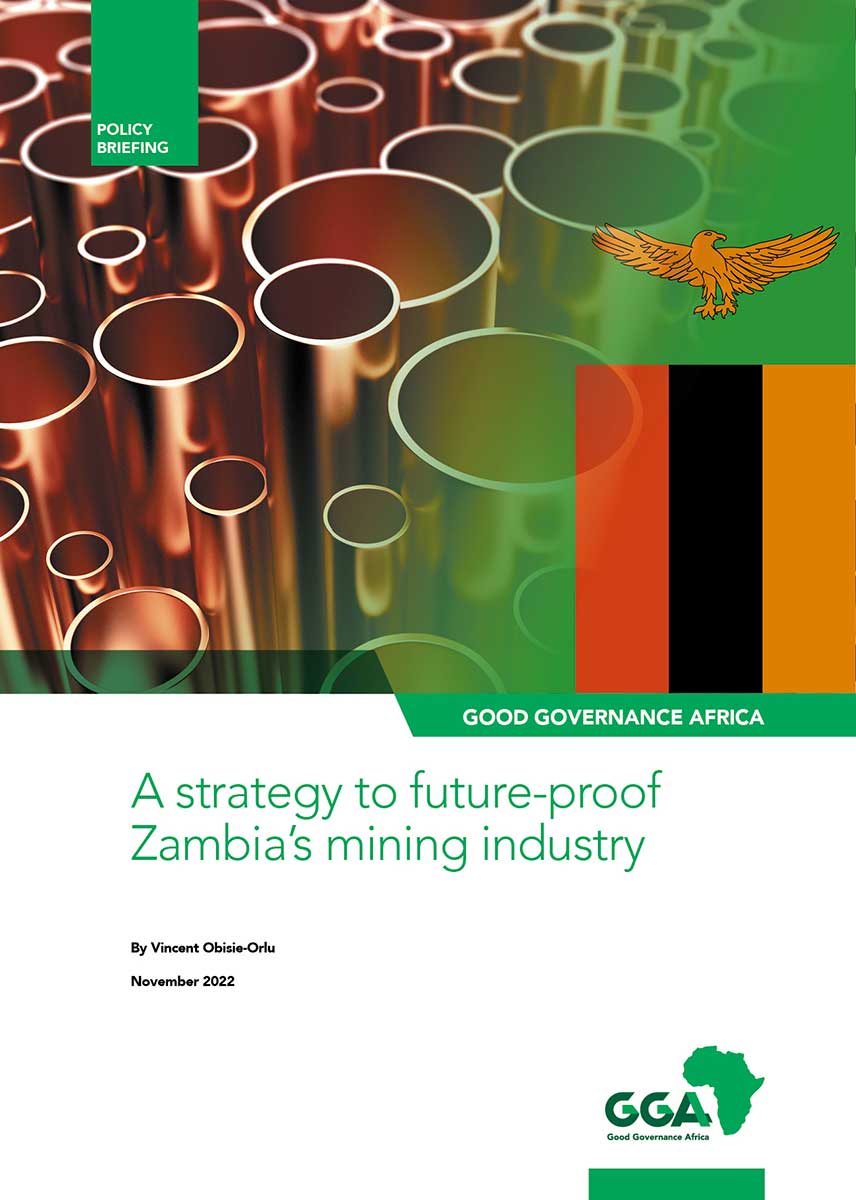
Zambia is in an opportune position to benefit from the growing demand for copper to support the global energy transition. Policymakers in President Hakainde Hichilema’s administration have an opportunity to build a resilient and high-performance Zambian economy to bring a true New Dawn. To realise this vision, Zambia must address key economic challenges such as the legacy effects of the previous instability of the mining regulatory system. Volatile changes have plagued the country until recently, with past governments changing mining taxes in response to the copper price. As a result, investment growth has diminished and the multiplier effect that would otherwise have been associated with mining has been foregone.
Poor macroeconomic governance and mining growth retardation have also pushed Zambia’s national debt to unsustainable levels, as exports have been insufficient to fund debt repayment. The country is now seeking debt relief from its external creditors and has struck a deal with the International Monetary Fund. In this first part of a two-part policy briefing series, we examine the key economic challenges associated with mining governance reform and provide recommendations that will help develop a resilient mining tax regime and a more streamlined regulatory environment. The second briefing will address the debt challenge.
Considering the growing demand for copper to meet the global net-zero goal, and an impending global supply crunch, more copper will need to be produced, and Zambia is in a prime position to do so. At the same time, Zambia has declining copper ore grades. Our primary recommendation, therefore, is that a profit-based Mineral Royalty Tax (MRT) framework be strongly considered. This will enable investment in the necessary capital and infrastructure needed to increase output and promote exploration. Though profit-based MRTs can be exploited by mining companies making claims of increased capital investment to increase outputs, when combined with the implementation of the Extractive Industries Transparency Initiative (EITI)’s reporting standards, the risk of exploitation is reduced.
Vincent Obisie-Orlu is a Natural Resource Governance researcher at Good Governance Africa. He holds a BA in International Relations and Political Studies from the University of the Witwatersrand. His work focuses on natural resource governance of critical minerals, Environmental Social and Governance (ESG) issues, sustainable finance, and energy policy in light of the energy transition.












